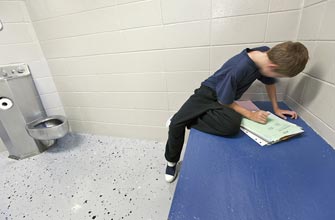As the former director of the Forensic Division of the state hospital for juveniles in Washington State, Dr. Gallagher has specialized experience in the evaluation of juveniles involved in the criminal justice system. Juveniles present special challenges to forensic evaluators as they must consider not just the presence or absence of mental illness, but the moving target that is their developmental status and the context in which that development is occurring. Thus juvenile forensic evaluations are often more complex and lengthy than adult evaluations and require specialized training and experience.
When the court or an attorney becomes concerned that a child may also have a mental health disorder or may be limited by their young age, this may raise some important questions, such as:
- Will the child’s mental disorder or young age prevent him/her from being able to adequately participate in his/her own hearing?
- Did that child’s mental disorder or young age play a role in how they got into trouble that should be considered by the court?
- Does that child’s mental disorder or young age place him/her at greater risk to break the law in the future?
The common legal questions that follow include:
- Competency to Proceed
- Competency to Plead Guilty
- Competency to Waive Miranda
- Infancy
- Diminished Capacity
- Insanity
- Transfer to Adult Court/Declination
- Sentencing Mitigation
- Recidivism Risk/Violence Risk Assessment
Children who have mental health and behavioral disorders are at increased risk for getting in trouble with the law. Mental health diagnosis is often an essential part of the evaluation process. Dr. Gallagher utilizes a wide range of psychological tests in the diagnostic process. The most common diagnostic concerns that she addresses in juveniles are:
- Intellectual Functioning (IQ)
- Adaptive Functioning
- Anxiety Disorders
- Attention-Deficit/Hyperactivity Disorder (ADHD)
- Autism Spectrum Disorders
- Conduct Disorder (CD) and Callous-Unemotional Traits
- Communication Disorders
- Malingering
- Mood Disorders (depression and mania, including Bipolar Disorder)
- Oppositional Defiant Disorder (ODD)
- Posttraumatic Stress Disorder (PTSD)
- Psychosis
- Specific Learning Disabilities (dyslexia etc.)
Dr. Gallagher operates as an independent evaluator and consultant. Conclusions are offered in an unbiased manner utilizing the best practices in the field. As a consequence, of course, the evaluation conclusions may or may not support the desired outcome. Dr. Gallagher is available to provide expert testimony in those cases in which her conclusions are in line with the needs of the retaining attorney.
